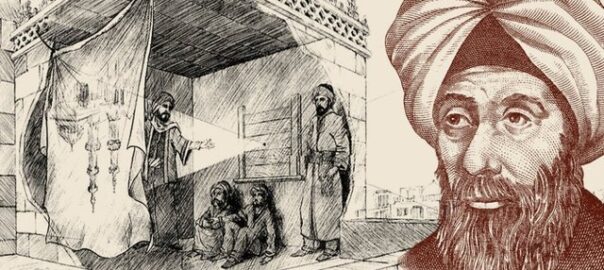Procrastination is the single most common word I hear whenever I bring up the topic of Time Management. “I’m a procrastinator” is the common reply people give me for why they are unable to meet deadlines or organize themselves well. Procrastination is treated like a fact of life, something inherit that can’t be changed or overcome, but this is nothing more than deceiving ourselves.
Procrastination is a habit, and a terrible habit too. However, like all other bad habits it can be overcome with strong will power, commitment and a reason to succeed.
The ability to change a bad habit and replace it with a good one is something every human has the ability to do, all we really need is motivation, and that is what I hope this chapter serves as, motivation to finally let it go.
In order to overcome procrastination, it is important that we understand its roots and causes. There are four main reasons why people procrastinate:
1. Lack of goals or vision
This has already been covered in details in a previous chapter. Goals are our motivation to go the distance and make something of our lives. Goals serve to motivate us, inspire us and give us a reason to face each day with renewed energy.
If someone lacks goals, they see no reason to commit to something, to do a good job or even to get it done on time. Life for such people is just a series of obstacles to survive with minimum effort, and so they leave every task for last minute and don’t really focus on quality either.
The first step to overcoming procrastination is to have goals to work towards. This will motivate you to organize your life in such a way that these goals are accomplished over time.
2. Deception
Shaytaan uses the trick of deception to get people to procrastinate, especially when it comes to righteousness and repentance. The common phrase “I’ll repent when I get older,” is a classic example of deceptive procrastination. We fool ourselves into thinking we have plenty of time to do something in the future.
In the case of repentance, procrastination is deadly and can cause great harm to one’s life in this world and especially in the Afterlife. Yet we apply this same mentality to other aspects of our lives. We think we have plenty of time to write that assignment, submit that report, prepare that class or prepare the meeting notes, until we realize that we don’t.
Then the rush is on, with great anxiety, fear and worry we rush to complete something at the last minute and the result is poor shoddy quality work, and a lot of unneeded stress.
The key here is to understand the deception of “later”. As Muslims we are taught to never leave anything for the future without saying “inshaa Allah” (If Allah Wills).
وَلَا تَقُولَنَّ لِشَيْءٍ إِنِّي فَاعِلٌ ذَٰلِكَ غَدًا
إِلَّا أَنْ يَشَاءَ اللَّهُ
“And do not say about anything that I will do it tomorrow without saying if Allah wills,”
(Surah Al-Kahf 18:23-24)
This statement “inshaa Allah” is meant to be a reminder to us that the future is in Allah’s control so we shouldn’t delay anything that can be done today.
We don’t know what tomorrow has in store for us, so let us lift the veil from our eyes and realize that every moment lost through procrastination is wasted time that you can never get back for the rest of your life. The time for action is now, not tomorrow.
3. Perfectionism
Another cause of procrastination is perfectionism. This is the one thing that caused me to procrastinate in launching my writing career. I always wanted to be an author and to spend my days writing books.
I had many ideas and wrote many outlines, summaries and first chapters. However, I found myself unable to move forward beyond that due to my desire for my writing to be perfect.
I would look at my first draft, full of mistakes and in major need of editing, and think to myself that nobody is going to read this. I would end up putting it away frustrated and moving on to attempt my next project. Perfectionism stood in the way of writing or completing any important project.
One day I finally realized that my chain of thought was ridiculous. I am a human being, and the writings of human beings are never perfect. First drafts, in general, are always a mess. This is why we edit, and hire editors, and even have to publish revised editions.
I realized that if I want to have a career in writing, I need to let go of my desire to be perfect and just write. Write whatever comes to mind, I can always edit, rephrase, delete or expand upon it later. Once I realized this, the procrastination ended and the writings began to flow.
You too may have a goal that you have been putting off because it isn’t perfect. The only way forward is to realize that it never will be perfect. It is a human project and being human means embracing imperfection. It doesn’t need to be perfect, it just needs to be your best effort. So let go of your desire for perfection and just focus on doing your best.
John Perry, the author of The Art of Procrastination, offers some valuable insight into how to overcome this problem:
You have to get into the habit of forcing yourself to analyse, at the time you accept a task, the costs and benefits of doing a less-than-perfect job. You must ask yourself some questions: How useful would a perfect job be here? How much more useful would it be than a merely adequate job…and you got to ask yourself: What is the probability that I will really do anything like a remotely perfect job on this? And: What difference will it make to me, and to others, whether I do or not?
Often the answer will be that a less-than-perfect job will be just fine, and moreover it’s all I am ever going to do anyway. So I give myself permission to do a less-than-perfect job now, rather than waiting until the task is overdue. Which means I may as well do it now. (Or at least start tomorrow)[1]
4. Instant Gratification
The fourth major cause of procrastination is the fact that many of us are programmed mentally to focus on instant gratification. The modern advertising industry thrives on instant gratification. From the time a child is able to understand, he is taught to prefer immediate delights over long-term deals. We grow up with this mentality and it has a detrimental effect on every aspect of our lives.
As Muslims, many fall into major sins like fornication because of focusing on instant gratification, instead of the long-term deal of marriage and the responsibilities that come with it. Likewise, people are looking for the instant fix, instant high, get rich quick schemes and even shortcuts to Paradise and Caliphate.
This mentality crosses over into our time management too. We may have goals and dreams, but the instant gratification of that next chat, next funny video, and next snack break gets in the way and causes us to procrastinate and often give up on anything that requires long-term effort.
This mentality is completely unislamic and destructive. The state of the ummah today is proof of this, on one hand the violent extremists seek shortcuts to Paradise, and on the other side the average Muslim prefers instantly satisfying his desires over working toward righteousness.
Islamic teachings emphasize the concept of Sabr which translates into many concepts like patience, persistence, self-restraint and consistency. All of these indicate long-term effort and long-term success. The idea of quick methods to success in this world or the Afterlife is a deception, unrealistic and unislamic.
Overcoming this barrier requires a shift in how we think and view the world. We need to understand that success, be it worldly or Afterworldly, can only be attained through long-term hard work. There is no shortcut to fixing the problems of the Middle East, just like there is no shortcut to training your soul or attaining financial success. If you want something, you need to be ready to commit to it long-term.
I will speak more about the concept of Sabr and its role in time management in a future chapter. The purpose here was to help us understand why we procrastinate. It is only when we understand why we have bad habits that we are able to move on and overcome them.
Positive Procrastination
As anti-procrastination as I may sound, I too procrastinate when it is beneficial. Procrastination, when planned, can actually be a very beneficial time management skill. Positive procrastination means to put things off until the right time to do it.
For example, if I am tired and it is after work hours, I choose to rest and have fun and put off any tasks until the next day. If it is work hours, and I am feeling drained, I take a short break and do something fun before getting back to work.
Some people might think I am procrastinating. After all, why put off until tomorrow what you can do today? My reply to that is, “Because I know I will do a better job at it tomorrow than if I do it now,”
If you have very high goals and aspirations, it is not possible to do everything in one day, one week, one month, one year or even one decade. You will have to plan and prioritise, and that means procrastinating the things you don’t need to do yet, in order to make time for the things you need to do now.
Sometimes the thing you need to do later is hard work and what you need to do right now is take a vacation. You shouldn’t feel guilty about that, it is in your best interest to take that vacation, recharge your body and mind and return revitalized ready to do a much better job than you would have done had you not taken the vacation.
This form of procrastination is good, as it is part of prioritizing and planning, and so it should be done without any feeling of guilt. Anything that benefits you in the long run is a good thing, even if that thing is a form of procrastination.
Just get started
So you have a goal, you know you shouldn’t procrastinate, you have a plan but you haven’t committed to it yet. Something is holding you back. Your mind is filling with excuses. If this is the case then you need to look yourself in the mirror and firmly remind yourself that there is no benefit in delaying anything good.
Every day wasted can never be returned. Why waste this precious resource? What do you have to lose if get started today on changing your lifestyle and focusing on your goals?
Think about your life in ten or twenty years’ time and where you would like to be then, and realize that if you want that, you need to start working towards it today. Delaying is not going to get you anywhere.
Remember that this whole drama is playing out in your mind and you control what you focus on and which thoughts you act on. So put aside the excuses, take control of your time and start changing.
“He who counts tomorrow as part of his life does not recognize death as it should be merited. How many days are to come but he will not be there! How many wishes he has for the days to come that he will not get! If you comprehend the terms of life and the speed with which it flees, then you will detest your desires and wishes,” Awn Ibn Abdullah[2]
New Habits – New Beginnings
Time management is a matter of replacing bad habits with good habits. We all have some habits that waste time or cause delays. Procrastination was focused on because it is the most common, but there are many others like laziness, oversleeping, overeating, and excessive socializing. Interestingly, the classical scholars referred to these things as corrupters of the heart.
Not only do they waste our time but they eat away at our souls and lead us down the part of wastage of other resources too like wealth and knowledge. If you are committed to time management then you need to be ready to change many habits over time.
The key to changing a habit is the following formula:
1. Identify bad habit
2. Identify good habit to replace it
3. Start replacing the bad habit with the good one today
4. Be consistent until the new habit is truly a habit (average 30 days)
5. After that, it gets easier, so you can move on to focus on changing another habit.
Changing habits requires commitment and Sabr, but they serve only to benefit you and you have nothing to lose when replacing a bad habit with a good one.
With regards to time management, here are some key habits that you need to develop:
1. Planning
Planning is part of the lifestyle of every successful person in history. Just look at how well-planned the Hijrah of the Prophet Muhammad (peace be upon him) was, how well Khalid Ibn Waleed prepared his armies for their battles, and the amount of planning that went into writing the major Islamic works throughout history.
Nothing worthwhile can be accomplished without adequate planning, and this makes planning a crucial habit to develop. Whether it is making a long-term plan to accomplish a goal, planning your year, month, week, day, lecture, meeting or class. This habit goes a long way in helping manage our time and make the best out of our lives.
2. Chunking
One of the causes of procrastination is that we look at things as huge piles of work that need to get done. However, any large task can be cut down to digestible chunks. This itself requires some planning, but also requires consistent small effort, yet it is a habit that save a lot of time.
For example: Just say you need to prepare 100 questions for an exam paper as a school teacher. You have 10 days to prepare it. Many people choose to spend the first few days complaining that the deadline is too short, then a few more days stressing over the deadline, before sitting down the night before to rush and prepare all 100 questions. This system makes no sense at all.
Why not prepare 10 questions a day? That won’t take much time, is not stressful at all and you will be completed on time with much better quality questions as you took the time to prepare each question carefully.
This concept can be applied to almost any aspect of our lives. Have an assignment to write? Do it in chunks, divide it into researching one day, data collection another, outlining another then a few days to write each section and you will complete it in good time without any stress.
Chunking is exactly how I am able to write books. By just setting aside an hour a day to write 5-6 pages, I am able to write entire books in a few months. Chunking is a powerful habit that can help you complete long term goals.
The prophet (peace be upon him) encouraged us to do extra acts of worship in small quality portions too when he (peace be upon him) said:
عَنْ عَائِشَةَ، أَنَّ رَسُولَ اللَّهِ صلى الله عليه وسلم قَالَ سَدِّدُوا وَقَارِبُوا، وَاعْلَمُوا أَنْ لَنْ يُدْخِلَ أَحَدَكُمْ عَمَلُهُ الْجَنَّةَ، وَأَنَّ أَحَبَّ الأَعْمَالِ أَدْوَمُهَا إِلَى اللَّهِ، وَإِنْ قَلَّ
“Do good deeds properly, sincerely and moderately and know that your deeds will not make you enter Paradise, and that the most beloved deed to Allah’s is the most regular and constant even though it were little,” (Sahih Al-Bukhari)
3. Allocating Time
One reason many of us procrastinate and never accomplish our goals is that we don’t set aside time for each of our goals. It is a very good habit to set aside time for everything important in your life.
Personally, I set time aside every day for my spouse, my children, my writings, reading, studying, reciting Qur’an, home-schooling my children and every aspect of my job. It is only because I have set a specific time for each task that I have been able to get things done.
This is a simple habit to develop. During the planning phase for each goal, work out how much time you need in a day for something, what time of the day is ideal for that task and set that time for that task.
4. Focusing
Focus is a habit, and an important one too. A study of the lives of successful people, past and present, shows that focusing on the task at hand is one of their keys to success. Focus means to be completely into the task at hand and not allowing yourself to be distracted.
This habit requires discipline and certain lifestyle changes like limiting your social media time, but the results are worth it. We are able to get more work done in half an hour with focus than in two hours with distractions.
The beauty of our religion is that we already have the five daily Salah to train us in focus. Yet this is lost on many of us, as we do not pray properly. For many people, the Salah is just a ritual and the heart and soul is not in it. Praying Salah properly is the best way to build focus which can then be transferred to other aspects of our life.
5. Sticking to a schedule
I have met many people who made schedules or To-Do Lists then forgot about them and continued complaining about not having enough time to get things done. Sticking to a schedule is a habit, and like any other habit, it needs to be built by sticking to it until it becomes a part of who you are.
Sticking to a schedule is a habit that every one of us needs to help us utilize our time properly.
This article is an extract from our hit book Getting The Barakah, available as part of our Self-Help Mega Bundle here.
[1] John Perry, The Art of Procrastination, p. 20
[2] Ibn Jawzi, Time Is Valuable, pp. 23-24





